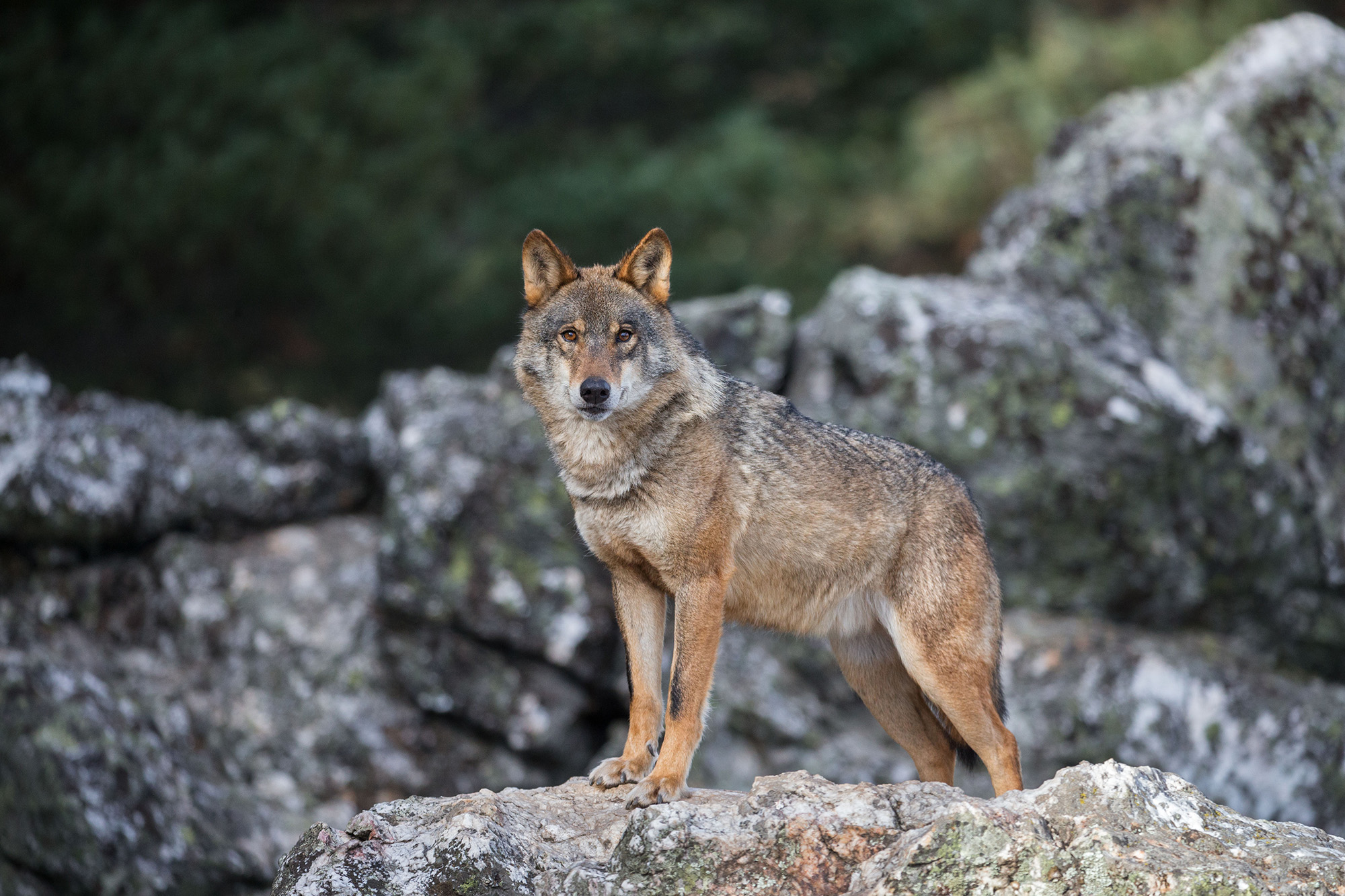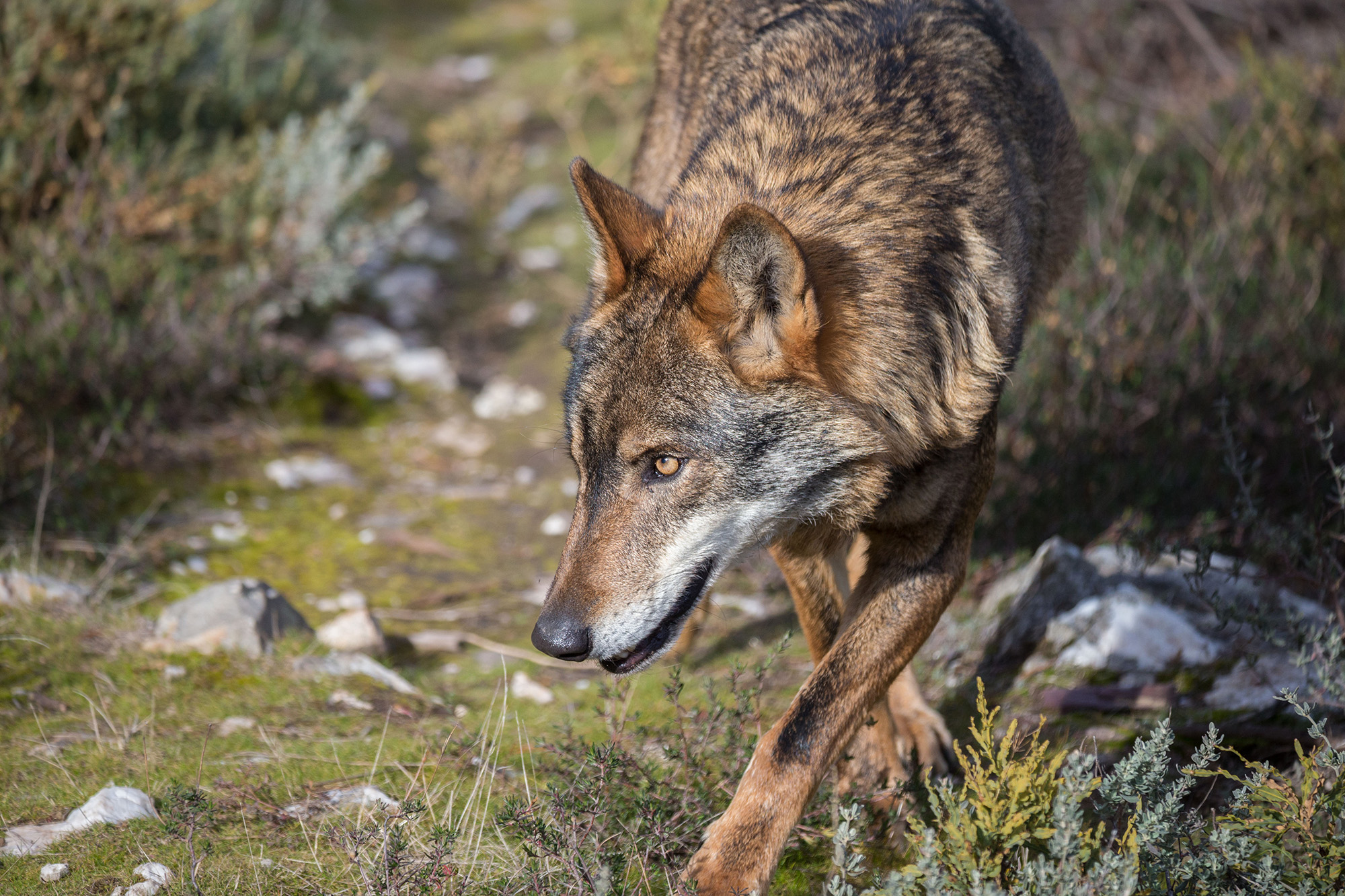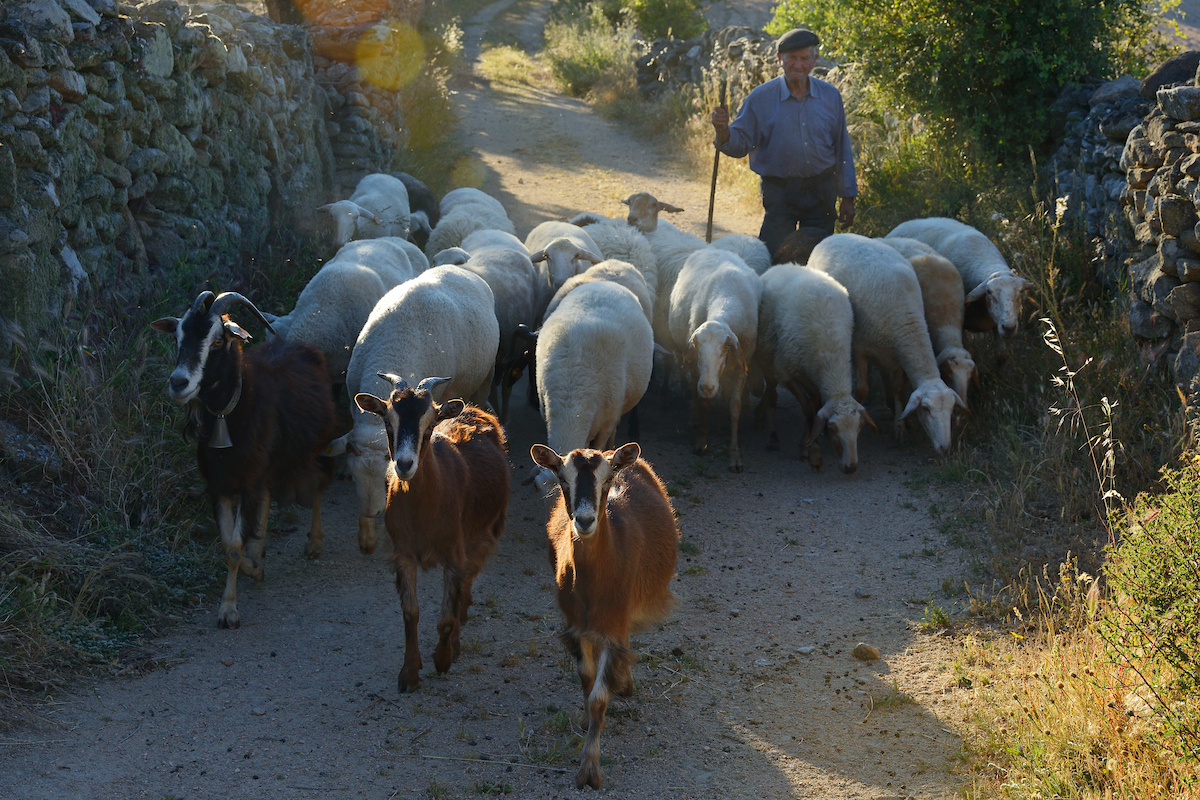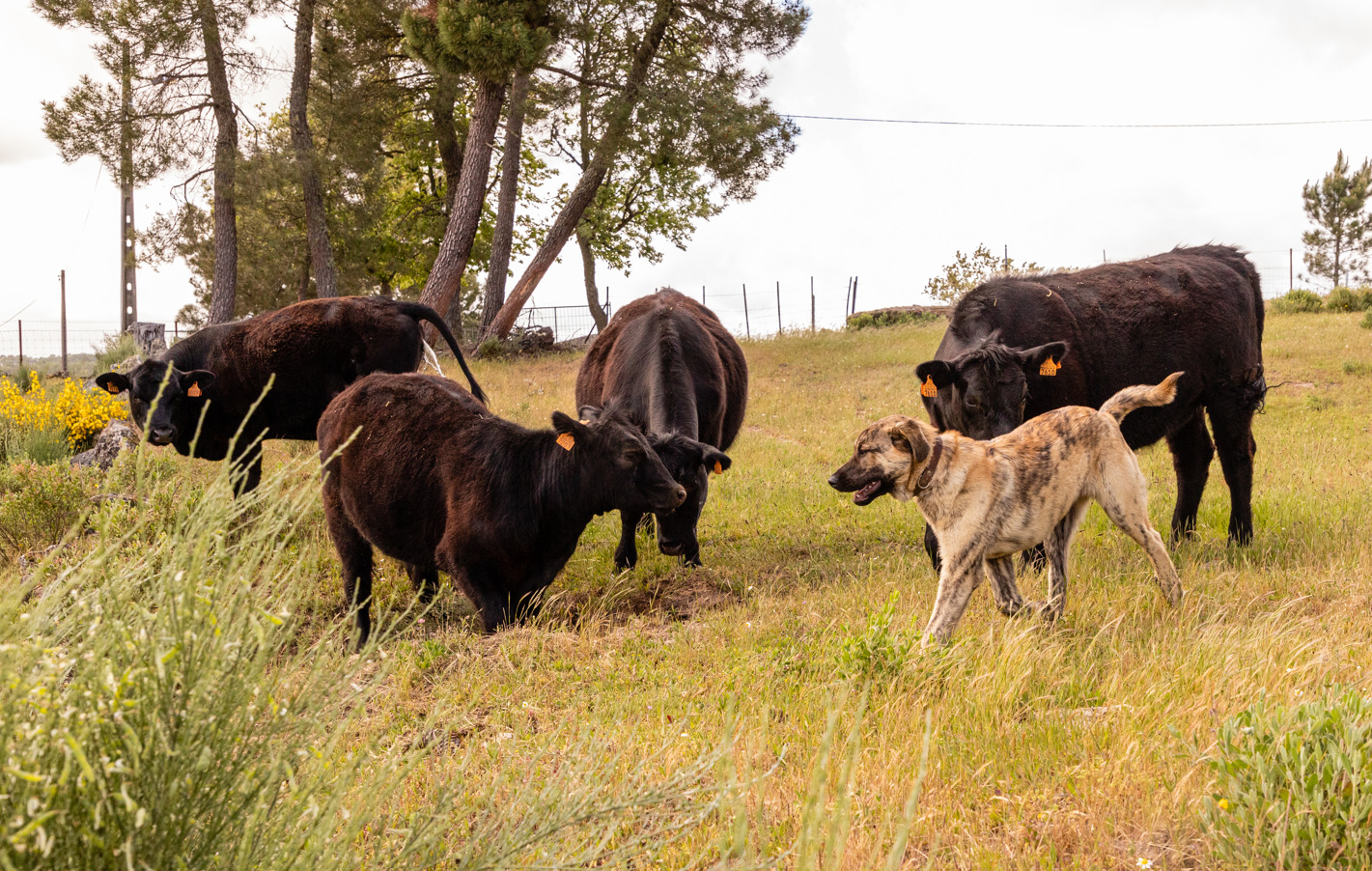On 4 September, the European Commission issued an official press release urging local and national authorities to take action in cases where the concentration of wolf packs has become a danger to livestock and people. In response to the Commission’s press release on “Wolves in Europe”, Rewilding Portugal sent back an official answer to communicate our concerns about opening the door to update the legal framework on the status of protection of the wolf to add further flexibility, with a press release lagued with factual distortion and demagogy, an irresponsibility that could put at risk the wolf, as well as the efforts and investment carried out in the past decades to recover the species and to move forward on a path of coexistence.

We now transcribe the response sent by Rewilding Portugal to the European Commission on this matter
In response to the Commission’s press release on “Wolves in Europe” dated 4th September 2023, we would like to communicate our concerns about opening the door to update the legal framework on the status of protection of the wolf to add further flexibility. The press release is plagued with factual distortion and demagogy, an irresponsibility that could put at risk the wolf, as well as the efforts and investment carried out in the past decades to recover the species and to move forward on a path of coexistence.
In Europe, there are many initiatives of cooperation between livestock breeders, hunters, conservation NGOs and governments, many of them funded by the LIFE program of the European Commission, that have contributed to conserve and increase the wolf population in many areas, develop and prove the efficacy of various tools of damage prevention and improve collaboration and governance between stakeholders. These success stories, achieved by many organizations in several countries, should be a flagship for the European Commission and illustrate the way to go.

Some facts about wolves in Europe
- Wolves pose no significant risk to people. In fact, Europeans are far more likely to be injured by cows than they are by wolves. According to the report “Wolf attacks on humans: an update for 2002-2020” by the Norwegian Institute for Nature Research, the risks associated with a wolf attacking a human are “above zero, but far too low to calculate”. Wolves are afraid of humans and will go out of their way to avoid them.
- Over 900 wolves are deliberately killed each year in the EU, indicating that there is currently considerable flexibility in management and in interpretation of the framework by different governments. Moreover, lethal control has showed to be ineffective reducing damage, on the contrary, it can often cause opposite effects, as it often destabilizes the social structure of packs that end up feeding on the easiest prey, unprotected livestock.
- Despite the overall positive trend of wolf population in Europe, there are still many wolf populations that have an unfavorable conservation status. For instance, that is the case of the Portuguese subpopulation segment south of the Douro River, which it is intimately dependent on the overall recovery – demographical and genetic – of the North- Western Iberian Wolf population, that is now fully protected. Taking steps back in the status of protection of the NW Iberian population and returning to the previous scenario of several legislative frameworks at the subpopulation segments, can severely condition the viability of Portuguese subpopulation south of the Douro River and worsen the situation of the whole NW Iberian population, already classified as Near Threatened by the IUCN.
- Predation on livestock is the main challenge to coexistence with wolves in Europe, and across the world. Wolves kill between 30,000 and 40,000 European livestock animals annually, mainly sheep. Thus, this only represent 05% of overwintering sheep in Europe so wolves are not a threat to livestock production, despite they can be locally impactful for specific farmers. As a result of predation, around 8 million euros are paid in compensation to European livestock farmers each year. From an economic perspective, and in comparison, with the multi-billion subsidies for agriculture in Europe distributed through the Common Agricultural Policy (CAP) – that account for 30% of the Union’s budget – this is a drop in the ocean.

Damage prevention: the way to go
Damage preventive measures present the most effective and rational way to enhance coexistence. Such practices include the training of dogs to protect herds, education of herders, and various deterrent measures which have shown to be effective tools to prevent damage from wolves, but they are still underutilise. Moreover, these measures normally start been implemented when damage has already happened, and conflict has appeared. Star carrying out early prevention in areas of recent recolonization and areas where the species can expand in the near future, before damage occurs, is fundamental to promote a positive coexistence.
Financial support available through the European Agricultural Fund for Rural Development (EAFRD) can also enhance coexistence, notably via investments and increased payments for areas where the presence of large predators may have a negative impact on beneficial grazing. All of these support mechanisms are currently being underutilised. In Portugal, for example, livestock guarding dogs are supported by EAFRD since 2015 which has extended its use, but there is not specific line to support other preventive methods.
Moreover, there is a lack of technical support to livestock breeders on how correctly implement damage preventive measures (e.g. educate good livestock guarding dogs) and which ones can better adapt to their management systems. Access to a variety of damage preventive measures needs to become easy and affordable for livestock breeders. There is a huge opportunity for the European Commission to encourage Member States to move in this direction.
The European Union Guidelines for State Aid in the agricultural sector allow EU Member States to grant full compensation to farmers for damage caused by protected animals, such as wolves and allow to fully reimburse the costs of investments made to prevent such damage. However, national compensation systems need to be reinforced to be quick and fair for livestock breeders while avoiding fraud and discouraging inaction in the implementation of damage preventive measures. This is a long-standing demand of many livestock breeders in many countries, including Portugal. The AGRI-Committee received already five years ago in a report requested by them, the recommendation of using money to support famers to prevent damage or pay risk of exposure, and reduce compensation system for unavoidable cases,
The livestock predation challenge is exacerbated by the fact that many European landscapes have little prey to sustain wolves. This is the case of Portugal, where the endangered wolf packs south of the Douro River rely only on livestock to feed. There are several studies showing that wild prey diversity and abundant and protected livestock are critical factors to avoid or reduce predation on livestock. Data collected by the University of Aveiro through the LIFE WolFlux project, funded by the European Commission, shows an increase in the percentage of wild boar in the diet of the packs as the species has increased in numbers and measures to prevent damage on livestock have expanded (Lino et al. submitted for publication).
We expect the European Commission to be an example for sound policymaking, and responsible wildlife management that is driven by science-based data, encourages coexistence with European wildlife and dialogue between stakeholders to reach long- term commitments to livestock protection and wolf conservation in Europe. Wolves are a keystone species for maintaining functional ecosystems and we are just starting to allow them to thrive after centuries of persecution. The European Commission is leading a remarkable strategy towards nature restoration and conservation, in which the wolf should be a key element to show that a future where Europeans and wildlife live alongside is possible for current and future generations.

REWILDING PORTUGAL